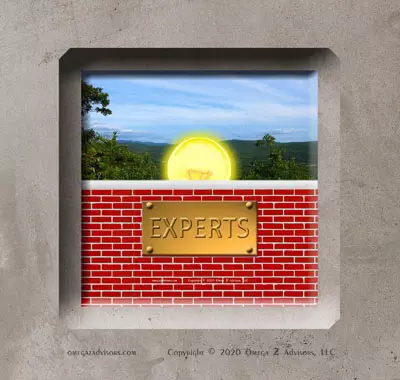Experts As Biggest Obstacle To Innovation, New Thinking
- Making Group Brainstorming More Effective And Innovative
- Linking Disruptive Innovations and Disruptive Personalities
- How Work Pressure and Fear Affect Innovation
- Creative Innovation (Pt 4): Spontaneity & Frequency
- Creative Innovation (Pt 5): Employees Running into Each Other
- Creative Innovation (Pt 6): People Mix
- Creative Innovation (Pt 7): Conflict
- Creative Innovation (Pt 8): Guidelines over Rules
- Creative Innovation (Pt 9): Pessimism’s Positivity
- Creative Innovation (Pt 10): Information & Interruptions
- Creative Innovation (Pt 11): Quantification Restricts Creativity
- Creative Innovation (Pt 12): Associative Thinking
- Creative Innovation (Pt 13): Overcoming Biases
- Creative Innovation (Pt 14): Time Alone
- Creative Innovation (Pt 15): Prototypes as Obstacles
- Difference Between Innovation And Creativity In Business
- Maximizing The Business Relationship Between Innovation And Creativity
- Experts As Biggest Obstacle To Innovation, New Thinking
People don’t like very new ideas. Experts are even worse. Thus, they often are the biggest obstacle to innovation and new ways of thinking.
Experts And New Ideas
Experts scrutinize new ideas especially if they exist in their fields. First, they ask, “Is this idea really new?” Then they ask, “Is it too new?” They don’t like ideas that fall at these ends. They like ideas that are “new but not too new.”

People have natural biases against new ideas, and thus, the biggest obstacle to innovation. Of all people, experts are the worse.
Now, again, most people are like this. Experts are just more extreme. So, imagine a staircase. Now, let’s say a gap of two or three stairs exists. Thus, to continue moving upward they require a leap (perhaps of faith).
Really new ideas are like this. People like to see new “steps” connected to the ones they know. They like to see new ideas that are somewhat like old ones. Experts are the same. They’re only worse.
Signs That Experts Are Biggest Obstacle To Innovation
Most experts said the iPhone would fail. Of the 15 Marvel Cinematic Universe (MCU) directors only one had experience with superheroes. This was on purpose, but why?
While it’s simple to say a strong bias lives in experts, it does not help much. It’s too easy just to exclude experts. That might not be good either. So, knowing what this bias looks like will help. It’s liking knowing the signs of a possible heart attack.
Thus, the main signs of this bias include:
- Too tightly wedded to a process the expert knows
- Excessive emphasis on key stories, experiences or successes from the past
- Discounting info, data, findings, research and more outside the expert’s field (knowing too little about fields outside expertise)
- Rejecting thinking that renders the expert’s expertise obsolete thus reducing income, status or publications
Considerations When Working With Experts
The main consideration when working with experts begins with the innovation sought: incremental or breakthrough. Experts add more value to the former than the latter if it’s in their field of expertise. They’re the safe, low return bet.
If the innovation sought is a breakthrough, then the best experts will have one or both attributes:
- Deep expertise in a field outside of the typical market for the product or service
- Broad-based knowledge about many different industries with access to the traditional expert
Most breakthrough innovations find applications in other fields. An example is the GoPro camera. Originally designed and marketing for surfing, it did not stay there. Experts can help assess a product’s potential for their field . . . if breaking into a new market is the goal.
Lastly, a final consideration when working with experts is to weigh their insights less. Consider non-experts more. This is hard though. People have a bias toward experts. They can even steer us from what we know is right. It’s why lawyers don’t want experts on their juries.
Again, these considerations exist for removing experts as the biggest obstacle to innovation and new thinking. If it’s not about these, then experts are likely wiser in those cases than in these.


